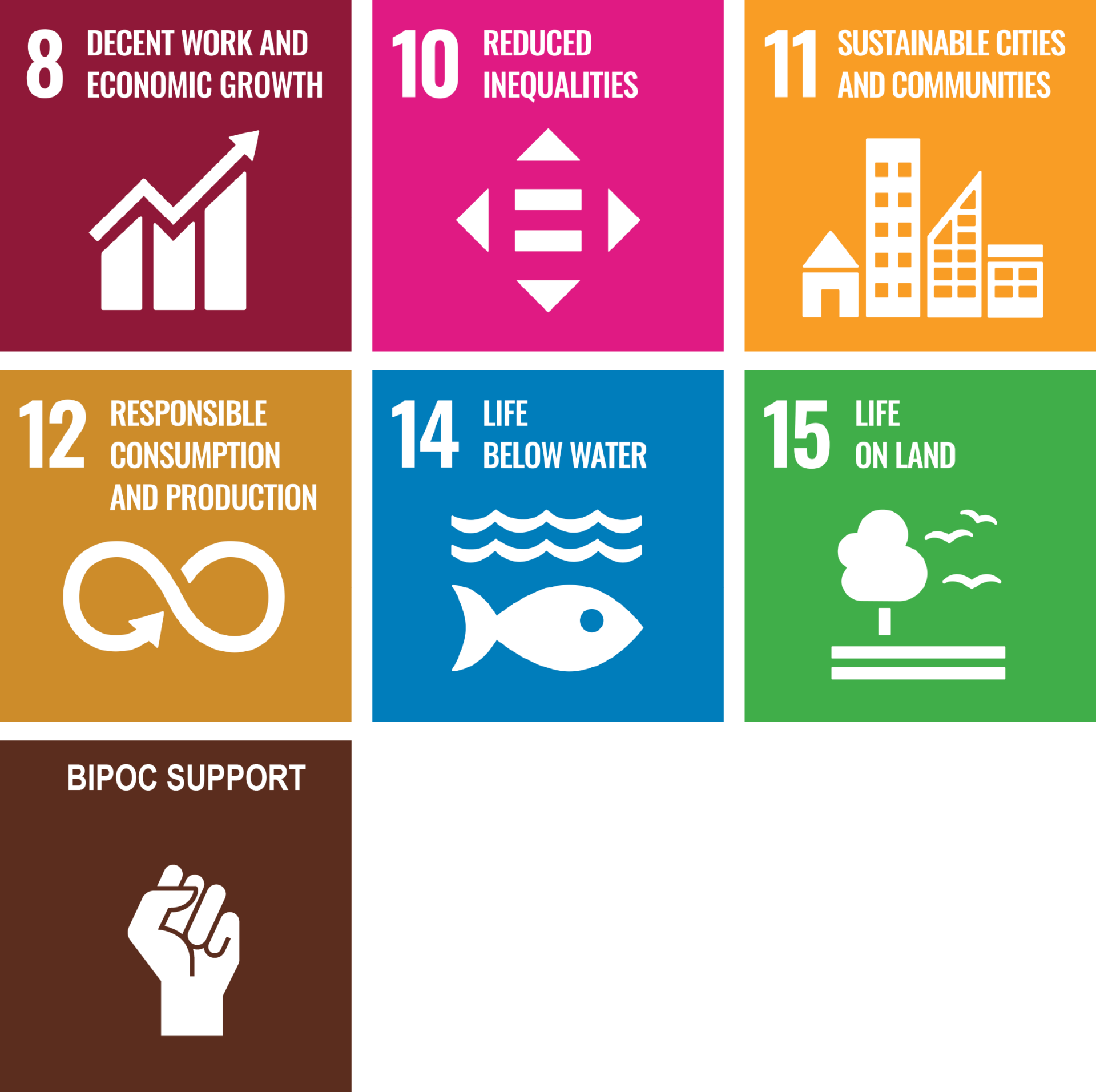Ecotourism
Travel Guide
What is ecotourism?
Table of Contents
- 1 Ecotourism Travel Guide
- 1.1 What is ecotourism?
- 1.2 Types of ecotourism
- 1.3 Why is ecotourism important?
- 1.4 Is it really ecotourism? Important points to consider when choosing an ecotourism experience
- 1.5 So, what can you do to ensure you choose the right ecotourism activity?
- 1.5.0.0.0.1 ✦ Consider choosing an activity that promotes indigenous culture and uses education to teach visitors about native groups and their customs.
- 1.5.0.0.0.2 ✦ Be mindful of the way you present yourself and your culture to locals.
- 1.5.0.0.0.3 ✦ Research the ecotourism organisation or experience you are considering.
- 1.5.0.0.0.4 ✦ Research the area you will be visiting and follow all the rules related to it.
- 1.5.0.0.0.5 ✦ Choose the right projects.
- 1.6 Ecotourism travel guide: Our top 5 favourite ecotourism experiences (so far!) to add to your green travel bucket list
We hope you find this ecotourism travel guide useful in helping you plan your travels.
Ecotourism has been evolving since the 1990s. Since then, there’s been extensive debate on the definition of ecotourism. The latest definition has been proposed by The International Ecotourism Society. They define ecotourism as:
“Responsible travel to natural areas that conserves the environment, sustains the well-being of the local people and involves interpretation and education” of both staff and visitors.”
This definition embeds a deeper focus on sustainability than previous definitions of ecotourism, as it includes the concepts of “responsibility”, “well-being of local people,” and “education”.
Importantly, we consider ecotourism to be different than nature-based tourism, wildlife tourism, and conservation tourism. If you want to learn more about how we define each of these kinds of tourism, we have dedicated travel guides that provide more in-depth information.
In summary, though, ecotourism differs from nature-based, wildlife and conservation tourism in the following ways:
✦ Nature-based tourism is any kind of tourism that uses wilderness areas or natural resources in a rather undeveloped way.
✦ Wildlife tourism is the viewing of, and non-consumptive encounters with, wildlife in natural areas.
✦ Conservation tourism is tourism that makes an ecologically significant net positive contribution to the conservation efforts of a particular biodiverse region, habitat or species.
In contrast, we define ecotourism as:
“A sustainable, non-invasive form of nature-based tourism that firstly, focuses on fostering learning about nature. Secondly, is ethically managed to be non-consumptive and low impact. Thirdly, it is locally oriented in terms of the benefits it provides to local people, its scale and the local control or management of the activity. Finally, ecotourism should also contribute to the conservation of the natural areas in which it takes place.
Evidently, ecotourism can and does encompass similar principles to nature-based, wildlife and conservation tourism. But it differs in that it also includes the above goals.
We also link ecotourism with six of the United Nations Sustainable Development Goals and our theme of BIPOC support.

We link these SDGs to ecotourism for the following reasons:
✦ SDG 8 has a target of devising and implementing policies to promote sustainable tourism that creates jobs and promotes local culture and product.
✦ SDG 10 has a target of reducing income inequalities. Ecotourism can be used for this purpose if the ecotourism initiative is locally-owned.
✦ SDG 11 has a target of protecting the world’s cultural and natural heritage. When done right, ecotourism can help contribute towards that target.
✦ SDG 12 has a target of sustainable management and use of natural resources, as well as developing and implementing tools to track sustainable tourism.
✦ SDG 14 has a target of increasing economic benefits to Small Island Developing States and least developed countries from the sustainable use of marine resources, including tourism.
✦ SDG 15 has a target to protect biodiversity and natural habitats. If done properly, ecotourism can contribute to this target.
The next section of our ecotourism travel guide includes information about the different types of ecotourism.
Types of ecotourism
We have only included three types of ecotourism in our ecotourism travel guide. We’re sure there’s more out there but these are our favourite ones and those we believe have the most positive impact.
Community-based tourism and ecotourism
Community-based tourism (CBT) and community-based ecotourism (CBET) both represent grassroots, bottom-up approaches to tourism development. They go beyond the definition of ecotourism to meaningfully include local communities in the planning, management, and development of the tourism initiative and the natural resources on which the tourism activity depends on. Although many studies show that CBT and CBET are failing to provide economic benefits to local communities, there are also many case studies that are wildly successful.
Eco
lodging
Eco-lodging refers to those accommodations that take their service beyond hospitality to actively contribute to sustainability or conservation. Genuine eco-lodges are making the choice to tread lightly on our planet, to support cultural heritage, to celebrate nature instead of trying to conquer it, and to meaningfully engage local communities. In doing so, eco-lodges aim to connect their guests with the destination in an authentic and meaningful way so they are left feeling more knowledgeable about the destination and with a desire to treasure the natural world.
Eco-cultural tourism
Eco-cultural tourism brings together both the ecological and cultural aspects of a landscape to offer visitors a unique eco and cultural experience.
Since both cultural and natural features are considered the prime attractions, eco-cultural tourism supports the conservation of natural habitats and the economic sustainability of local communities. This is particularly important when it involves First Nations Peoples.
Why is ecotourism important?
There are a number of reasons why ecotourism is important. Our ecotourism travel guide will only focus on the main ones.
Ecotourism is important because it:
✦ Benefits biodiversity conservation by supporting wildlife conservation and protected areas. This includes the protection of endangered species and habitats.
✦ Helps diversify the livelihoods of people who live in protected areas or close to them. By diversifying their livelihoods, ecotourism motivates people to shift their reliance on practices that may harm the environment. For example, agriculture, logging, hunting, etc.
✦ Influences the behaviour of tourists. They may take up more sustainable behaviours in their daily lives long after engaging in the ecotourism activity.
✦ Provides the opportunity for people to learn about the natural habitats upon which the ecotourism activity depends on, as well as its conservation.
✦ When combined with eco-cultural tourism, ecotourism can help promote and preserve traditional practices.
Is it really ecotourism? Important points to consider when choosing an ecotourism experience
So far, our ecotourism travel guide has provided useful information about the benefits of ecotourism. However, there are also some cons to ecotourism. Being aware of them will help you choose the right ecotourism experience.
Some of the negative impacts of ecotourism include threats to indigenous cultures, displacement of communities, disruption and impacts on ecosystems, and the questionable intentions of some organisations that claim to offer ecotourism but actually don’t.
Let’s expand a little bit more on these.
First, by displacing local communities to make way for ecotourism, communities may be further marginalised. Other impacts also include the ‘dilution’ of traditional practices, particularly when local communities begin to take up ecotourism as an alternative way of living. They may start shifting their cultural behaviours to adapt to those of tourists.
Second, many local communities have been historically displaced to make way for ecotourism. In fact, many of the nature reserves in Africa are privately owned. They were essentially stolen from the local Maasai People.
Third, because the essence of ecotourism is that it happens in sensitive natural areas, the practice itself can unintentionally harm the same natural ecosystems where it happens. Particularly, if and when tourists are not aware of the rules that apply to the area.
Finally, many organisations have jumped on the ecotourism bandwagon to try and attract a bigger market of travellers who increasingly demand ecotourism as their preferred tourism option.
So, what can you do to ensure you choose the right ecotourism activity?
Our ecotourism travel guide lists 4 key ways below.
✦ Consider choosing an activity that promotes indigenous culture and uses education to teach visitors about native groups and their customs.
✦ Be mindful of the way you present yourself and your culture to locals.
✦ Research the ecotourism organisation or experience you are considering.
In particular, their relationship and contribution to local communities.
Also follow all the guidelines of any ecotourism organisation you are travelling with.
✦ Choose the right projects.
Choose projects that promote low-impact visitor behaviour, support local conservation efforts, are managed by the local community (or actively engage them in the ecotourism business), and offers an educational component for both you as a visitor and local communities.
Ecotourism travel guide: Our top 5 favourite ecotourism experiences (so far!) to add to your green travel bucket list
To wrap up this ecotourism travel guide, below we’ve included 5 amazing experiences to consider for the ecotourist.
✦ 27 Charcos
The 27 Charcos is a beautiful community-owned ecotourism project on the north shore of the Dominican Republic.
The project started very small but with the help of the Peace Corps and the drive of the community, it has evolved into a truly remarkable project.
Through its success, the project has been able to give back to the community by building hospitals, schools and even a sewage system!
It has also expanded to protect more of the natural area surrounding the project. Thanks to its conservation efforts, the project is now home to the highest population of the endangered Solenodonte.
✦ 360 Tour Galápagos Eco Fishing
We visited San Cristobal Island and did the 360 Tour with Galápagos Eco Fishing in March 2019. Our guide, Fabrizio, was extremely knowledgeable about the Galápagos fragile ecosystem.
The business does a really great job of educating tourists about conservation. In all the places we visited, Fabrizio would stop and pick up rubbish that had been washed up from the sea.
Not to mention that all the places we visited were extremely beautiful. I will always remember this experience as the first time I swam with a sea lion.
✦ Mon Repos Turtle Centre
The Mon Repos Turtle Centre is located in Bundaberg, in central Queensland. The Centre is dedicated to the research, protection and education of marine turtles.
From November to late March, they offer Turtle Encounters, where you can see marine turtles laying eggs or watch the baby turtles hatching.
While you wait for the Turtle Encounter, you can browse the display with information about turtle conservation. There is also an interactive theatre display.
✦ Tortuguero National Park
Visiting Tortuguero National Park in Costa Rica is like immersing yourself in the Amazon jungle. There is so much wildlife to see here!
There are very few eco-lodges to stay in, which makes it that much more special. When we visited in 2015, we stayed at the Evergreen Lodge. We also booked one of their wildlife safaris. They take you through the dense jungle in search of wildlife.
I still remember our guide, Kevin. He spent the entire trip sharing his knowledge about the conservation of the area.
At the end of the tour, we visited the small island of the local community, where we learned they have their own recycling facility. Pretty cool!
✦ Heron Island
Heron Island is a nature lover’s paradise. The island is home to a wide variety of species, all of which come to visit throughout different months of the year.
There is only one accommodation on the island and a research station, which belongs to the University of Queensland. The hotel has been eco-certified by ecotourism Australia.
While visiting, you can book a tour of the Heron Island Research Station, watch baby turtles make their way to the sea, spot whales or go diving in the rainbowed reefs of the Southern Great Barrier Reef.
